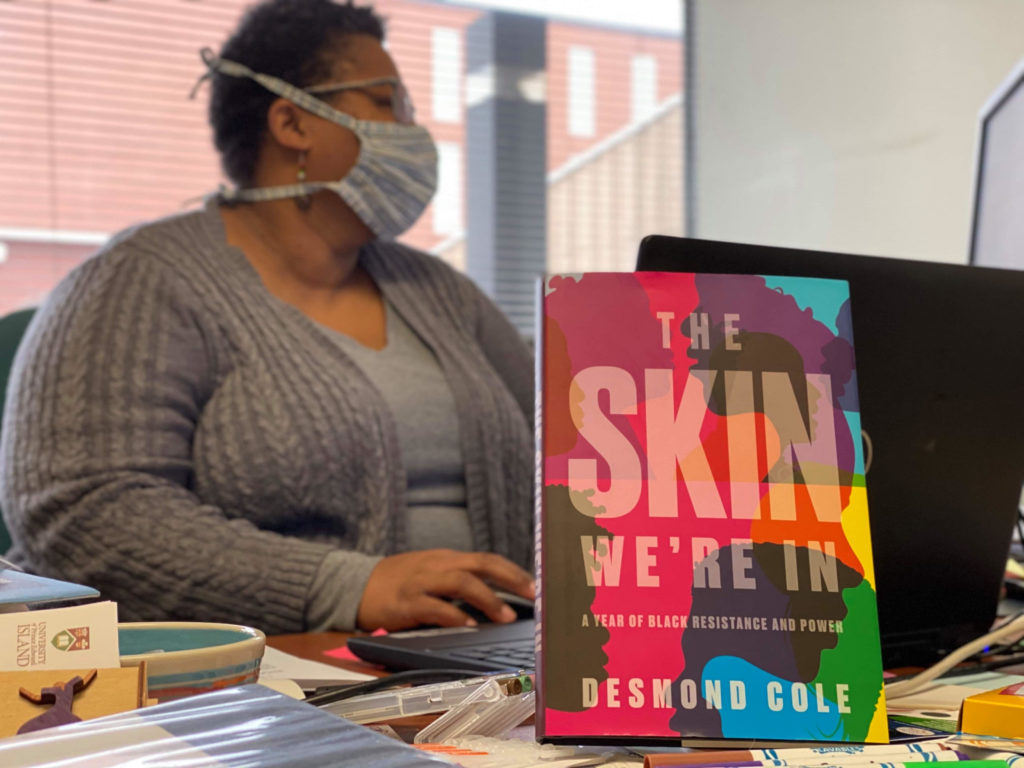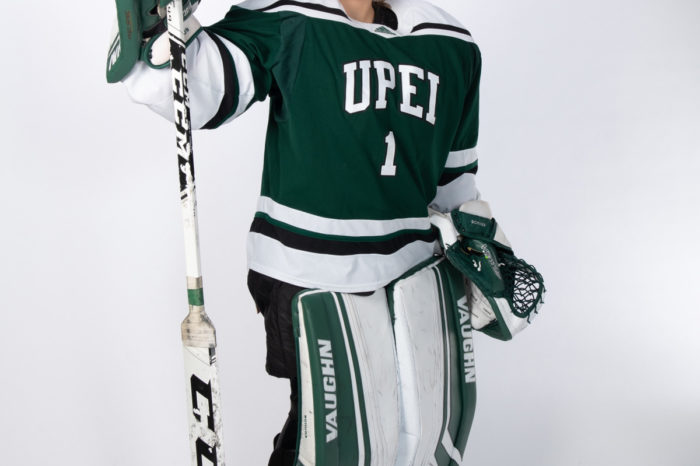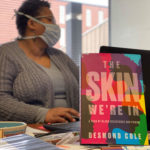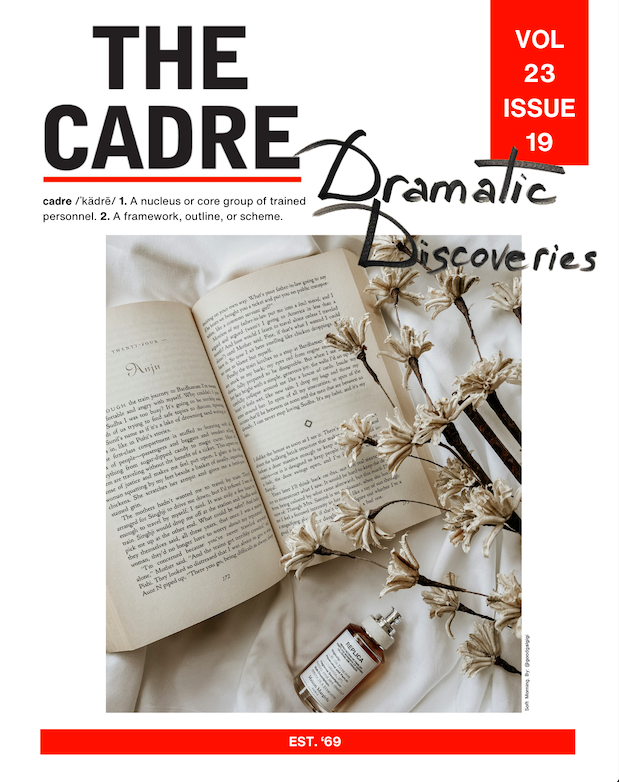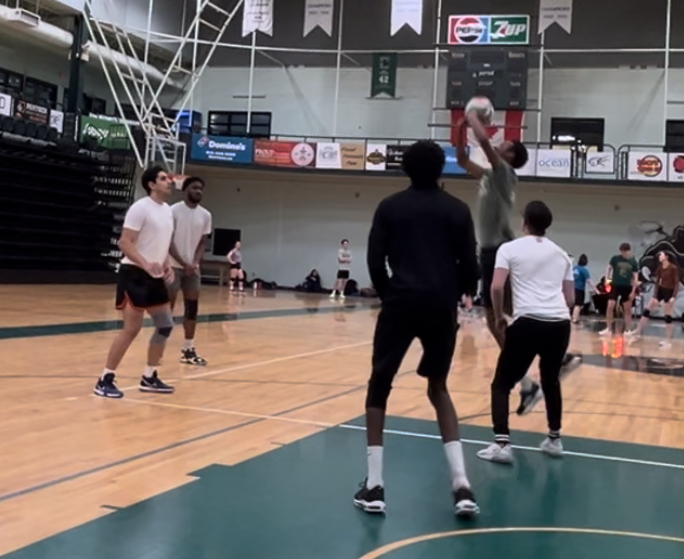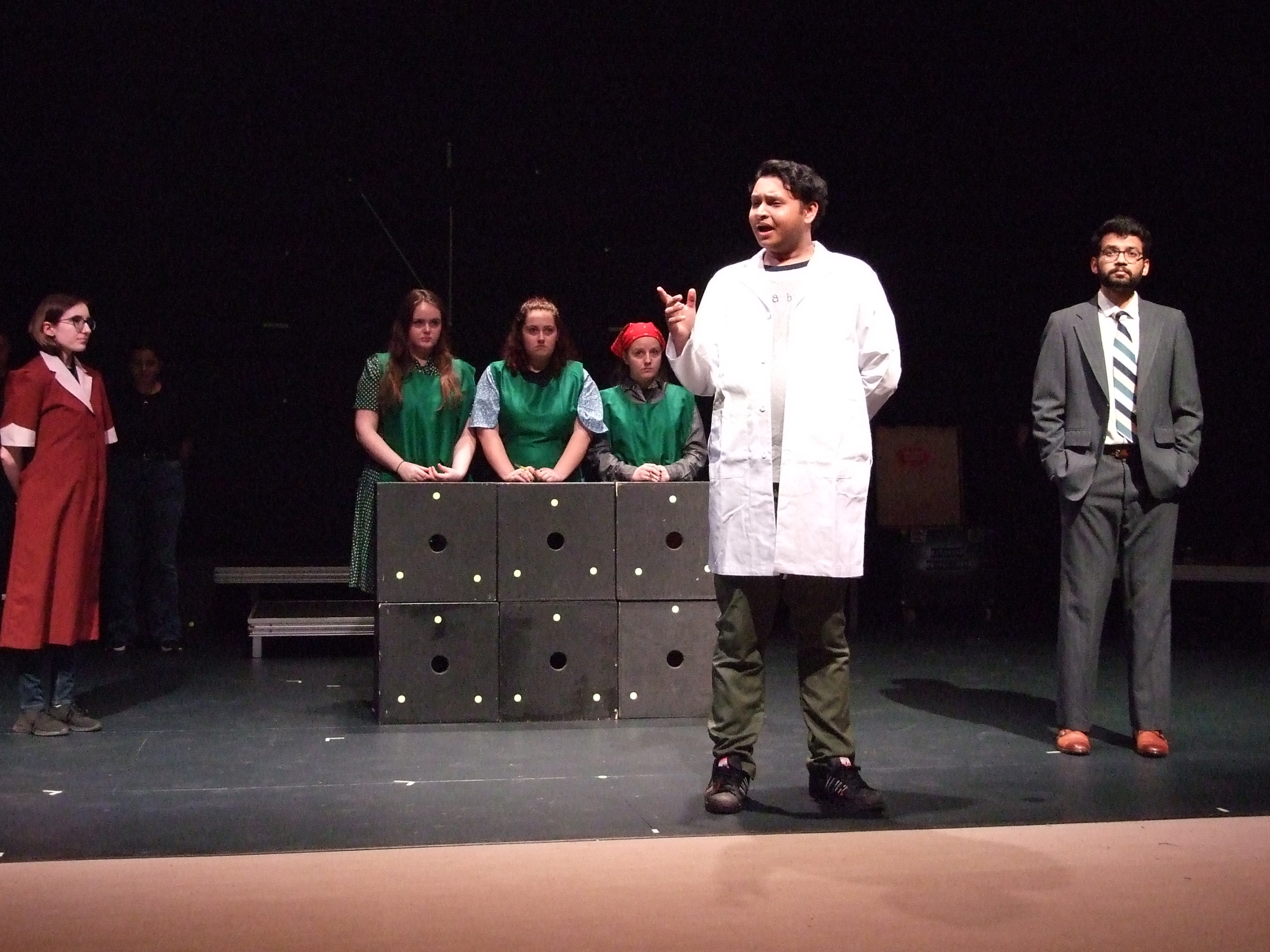The year-long book club meets once a month to discuss chapters of Desmond Cole’s bestseller The Skin We’re In.
It was the summer of 2018. Yolanda Hood was with a friend downtown Charlottetown, who started pulling her across the street. They were not at a crosswalk.
Hood stepped back.
“Oh my God, I can’t just jaywalk.”
Her friend looked at her in confusion.
“What are you doing?” Hood replied.
“Are there police around?”
“There’s no police around,†her friend said.
“But I’m not white. You can cross the street like that and nobody’s going to stop you, but I’d be the one who gets stopped,†Hood said.
Growing up in the U.S., Hood has seen Black people taken down by police just for jaywalking. She is still traumatized.
Her friend joked.
“My whiteness will save you.”
She pulled Hood across the street.
It’s not just Hood who is traumatized by racism. So is her daughter.
They once got pulled over in P.E.I. Hood’s daughter was 16.
As the officer approached, Hood turned around. Her daughter was trembling and holding her phone, ready to film.
The officer saw what was happening.
“It’s okay, it’s just your registration has expired.”
He gave Hood a ticket and let her go.
Hood hadn’t understood how racism had impacted her daughter until that day, she said.
“You don’t realize how it builds up in you until you start doing these weird things.”
Hood, now a librarian at UPEI, has turned the trauma of racism she’s experienced into a book club.
The club plans to meet once a month to discuss chapters of Desmond Cole’s bestseller The Skin We’re In, a book that documents racist incidents in Canada.
There are people who saw and heard about the horrors of racism in the world, but they didn’t know what to do or how to learn more about it, so the book club is here to help, Hood said.
“It’s good for BIPOC people because it’s our experiences,” she said.
“It’s good for white people because they get to think about themselves and how they’re situated and how they can make things better.”
“There’s something there for everybody.”
Green MLA Karla Bernard agreed. She attended the book club’s launch on March 16.
In a multicultural place like P.E.I., the book club provides a space for BIPOC people to share their experiences, from which everyone can learn, she said.
“The most important way that we grow together is when we understand people’s experiences.”
Simon Lloyd said he was not sure every Islander is ready to discuss issues like racism and white supremacy. He works at UPEI’s Robertson library and was at the launch.
“There still needs to be more progress,” he said.
“But having those discussions and participating in this group is an action that I, as a white person, can take. I hope it will help in the long term.”
The club’s first virtual meeting to discuss the first chapter is set for March 30.
